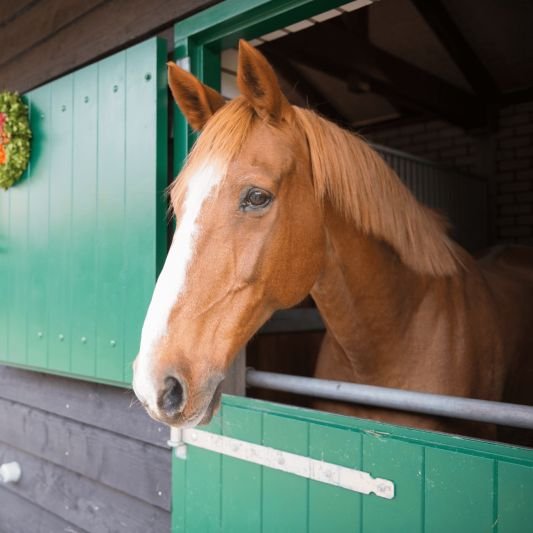
Owning a horse is more expensive than owning any other pet. Just like having a d
og or a cat, a huge chunk of your budget for your horse should go to food, vets, medicines, grooming, and everything else that your pet needs.
But unlike dogs and cats that can be contented living inside your homes, horses would need a stable to sleep in and a wide piece of land to graze on.
This is the reason why, when unable to provide fields of grass to run around in, horse owners resort to boarding their horses.
Contents
Horse Boarding Cost
Boarding your horse means paying weekly or monthly to a boarding barn/stable to keep your horse. The fees you pay would depend on the kind of boarding you choose.
In addition, should you decide to add a few more services, expect as well to add a few more dollars to your bills.
Partial vs Full Boarding
When you’re just paying for the place but is responsible for everything else like food, the vet, medicines, etc., that’s partial boarding. This could cost you about $295 per month.
A full boarding gives the barn owner the responsibility for the feed, the stalls, as well as other horse care basics like hosing off sweat and even blankets. Depending on the area, this could cost you from about $350 to as much as $475 per month.
Some amenities are already included, depending on the barn owner but at times can be added to your monthly bills.

Pasture Board
Now, here’s another way of boarding – pasture boarding. Imagine your horse just grazing freely in tens of acres of land at liberty to run when it chooses. This is pasture boarding.
At about $200 per month, this is quite the cheaper option as compared to the other two.
But while experts believe horses that run free in wide spaces remain happy, it has also contributed to horse-hair being in poor quality, horseshoes getting lost, etc., including the inconvenience of you, the owner, scouring 40 or so acres of land just to find your horse.
Maintenance Costs
Food will eat up a huge chunk of your monthly costs for your horse’s upkeep. Hay, per pound, costs anywhere from $0.23 to $0.39 and normally, a horse would be able to eat about 15 to 20 lbs of hay per day.
Grain and feeds can also constitute a horse’s diet. Feeds can be purchased for as low as $25 to as much as $35 per 44-lb bag.
Just like humans and other pets, horses also need regular checks with the doc. Veterinary cost for horses would amount to around $30 to $80 per visit.
Note that a horse needs at least two vet visits per year so that would amount to $60 to $75 for the two vet visits. Some vet clinics would also offer packages which include wellness, fecal screening, and vaccines at $25 to $60 per month.
Vets aside, your horse also needs a farrier for trimming hooves and for the application of keg shoes. According to the American Farriers Journal, this costs about $120.19 on the average. In some areas, it could be more.
Your horse’s dental health can also be checked while the vet is there. A dental exam starts at $100. It could cost you more, depending on your horse’s dental needs.
Parasites eat up most of the nutrients that are meant for your horse, hence, the need for deworming. This could cost you about $30 per session; with two sessions needed per year.
Vaccines can be for as low as $7 (1 dose) for tetanus to as much as $140 (10 dosages) for a vaccine against Equine Herpesvirus types 1 and 2. Of course, you have to pay for the vet administering the vaccines which is an additional cost.
You also need to check with your vet as to the kinds of vaccines that your horse needs. Some basic needs would also cover blankets (around $60), fly spray (around $23 per 32-oz bottle), or even fly masks (around $20).
Of course, these costs are mostly for those whose horses are placed for partial boarding. Horses on full boarding have the luxury of having all of these costs shouldered mostly by the boarding barn owner.
Factors that Affect Boarding Costs
As previously discussed, your choice on whether it is partial or full boarding affects the cost. With full boarding, you have peace of mind that whatever your horse needs, it would be served (depending on what’s included in the package).
Partial boarding needs total care from you as you are just paying for space. Your time and commitment matters for this option.
Cost of horse boarding can also be influenced by the geographical location of the boarding barn. Taxes in some areas can be higher than others and these can be felt spread out to your boarding costs.
Conclusion
Owning a horse can be very expensive. Aside from the care, you are supposed to give your horse, there is also the consideration of the maintenance costs and that includes boarding.
Although costs can be higher as compared to other pets, the rewards can be great. And so if you are thinking of getting yourself (or your kid) a horse, plan ahead.
As soon as you have everything planned out and written down, go ahead and gallop your way to your nearest breeding farm and get that horse… now!
